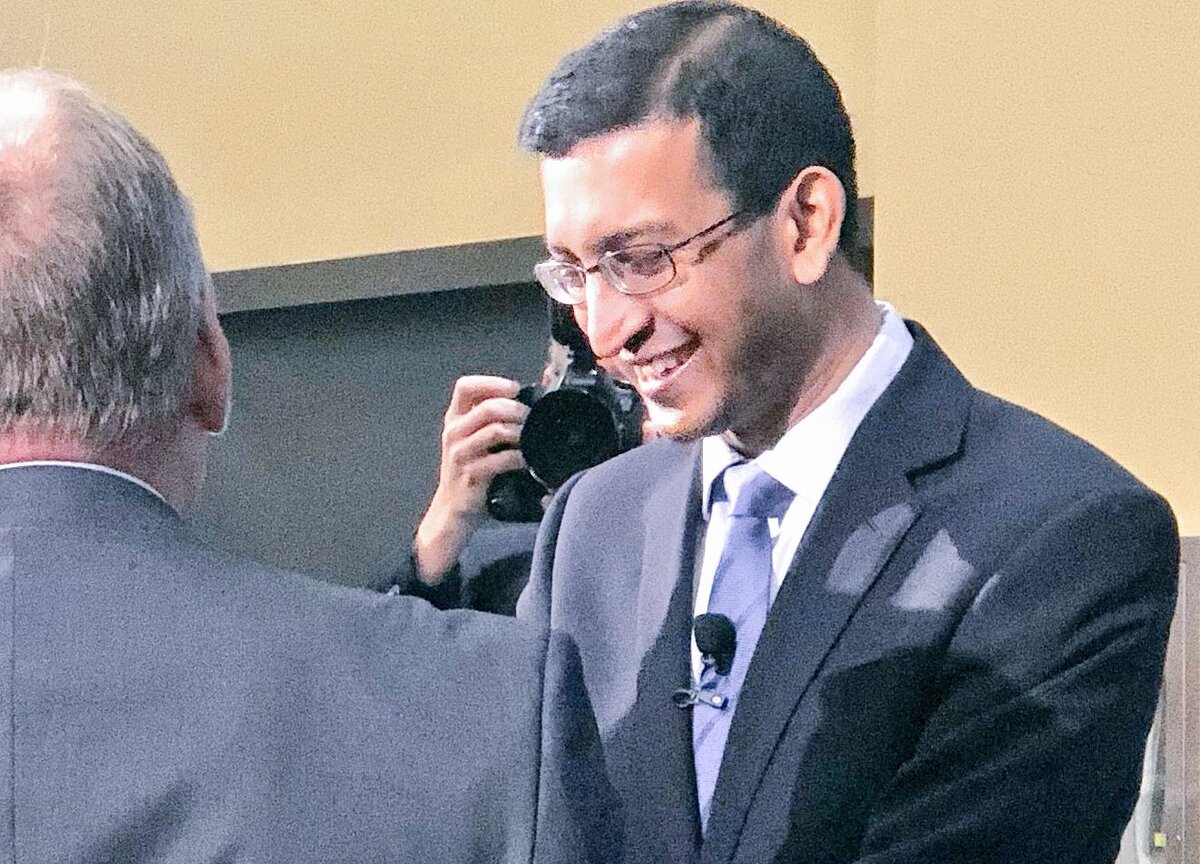Harvard’s robotic wearable device improves walking for people with Parkinson’s
Researchers from Harvard and Boston University have used a soft, wearable robot to help a person living with Parkinson’s walk without freezing.

Raj Chetty is an Indian-American economist who holds the William A. Ackman Professor of Public Economics at Harvard University. He also serves as the Director of Opportunity Insights, a company that analyzes “big data” to determine how to improve the odds of success for kids from underprivileged families.
Now, he has won the rare George Ledlie Prize for “using big data to dispel myths about who lives the American Dream and the challenges others face.”
Advertisement
The American Dream is becoming more accessible to everyone thanks to Raj’s innovative research on economic mobility and his efforts to inform policymakers about this information, according to University Provost and Chief Academic Officer Alan M. Garber.
Advertisement
Along with Chetty, HMS systems biologist Michael Springer also received the prestigious Harvard University George Ledlie Prize. Raj Chetty developed a better, quicker Covid diagnostic system to assist in stopping the spread of Covid.
Springer designed and ran the new Harvard University Clinical Laboratory, which oversaw testing and samples.
The institution awards the honor “no more frequently than every two years to a member of the Harvard community.”The member should have made the most valuable contribution to science or benefited mankind in any other way,” the institution stated. This information comes in a press release issued on August 9.
Chetty claimed that his own background—moving to the US from India with his parents when he was nine—led to his interest in this work. In addition to the differences between India and the US, he claimed to have seen differences between himself and his cousins.
“The opportunities they had were greatly shaped by the fact that they just so happened to be the ones who were picked to get a higher education in their families,” said my parents, who grew up in very low-income households and villages in south India.
According to Chetty, it was typical at the time for families in poor nations to choose just one child to receive an advanced education because they couldn’t afford to educate all the children.
He continued, “And it just so happened that my dad’s family chose him, and my mom’s family chose her.”
And I could kind of see how that had played out over the generations in my own family, through the opportunities my cousins had against what I’ve had. I felt that coming to Harvard and the many opportunities I’ve had had their roots in my research.
The influence of geography on children’s results, according to Chetty, is one of the most significant effects they have been able to observe.
Advertisement